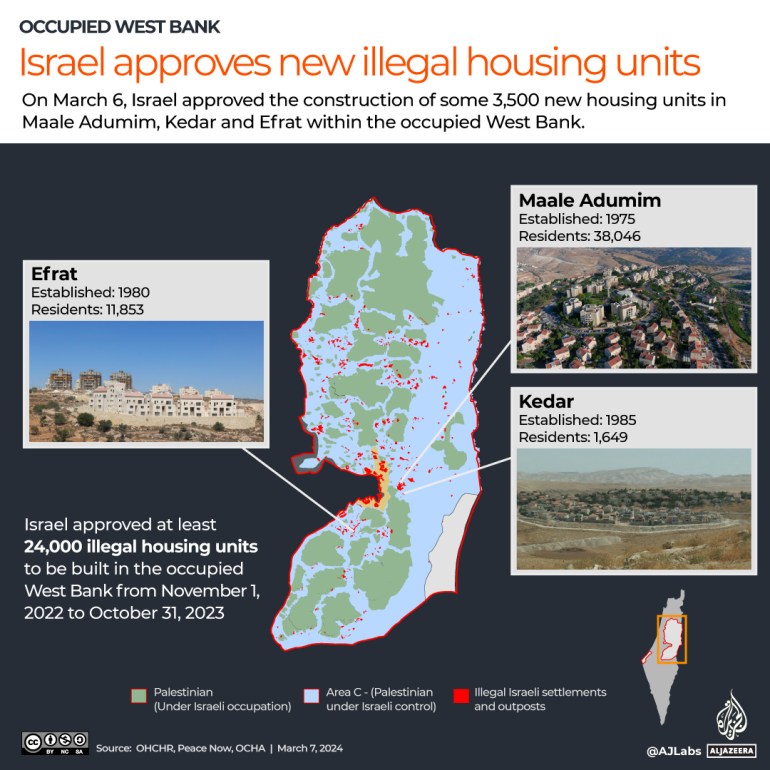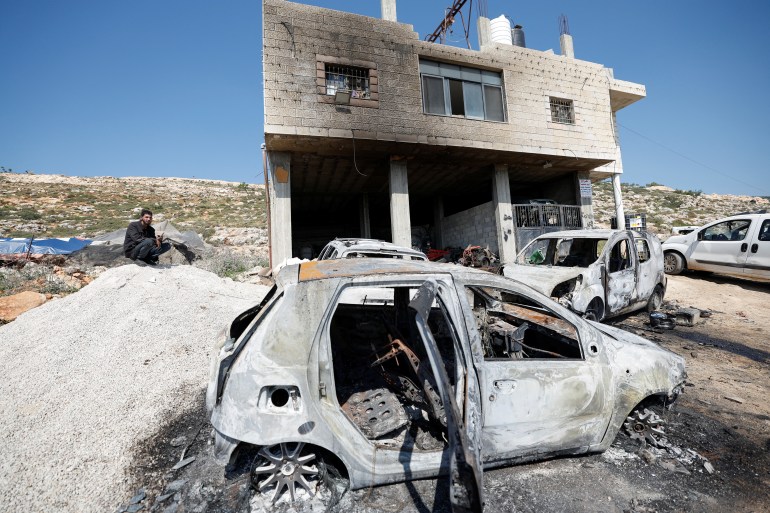About a month ago, a quiet transfer happened.
The Israeli military’s civilian administration has handed more control over the occupied West Bank to the settlement administration, led by far-right Finance Minister Bezalel Smotrich, who himself lives in an illegal colony.
Now Smotrich and his settlement administration control more things, such as building regulations and management of agricultural land, parks and forests.
Since entering government, Smotrich has openly pushed for more Israeli settlements in the occupied West Bank – illegal under international law – as steps towards annexation.
So what does all this mean?
What is colonial administration?
It was created in February 2023, after much political wrangling between Smotrich – who is also a minister in the Defense Ministry – and Yoav Gallant, the defense minister.
There were a lot of details, but the bottom line was that the responsibility for monitoring illegal construction in the occupied West Bank fell to Smotrich.
This means that illegal settlements or outpost construction would be ignored and ultimately approved, while Palestinian construction would be subject to strict permit review and often demolished.

How did Smotrich manage to do this?
Smotrich and his far-right colleague, Itamar Ben-Gvir, lead a coalition of far-right and ultra-Orthodox parties that have supported the regime of Israeli Prime Minister Benjamin Netanyahu.
Using the weight of the far right, Smotrich negotiated to take control of Israeli expansion into the occupied territories.
So what changed on May 29?
The military’s handover on May 29 means pages of regulations will now be enforced by the Colonial Administration, making the expansion of illegal settlements even easier.
Did Israel already control the occupied West Bank?
Israel occupied the West Bank in 1967, along with Gaza and East Jerusalem – the longest military occupation in modern history.
But even occupation has its rules.
According to international law, the occupying power cannot move its citizens to occupied territories. Israel’s Supreme Court upheld it in 2005.
This did not prevent the Israelis from build illegal settlements on stolen land. And that has not stopped Israeli settlers – sometimes supported by security forces – from attack Palestinians to force them to leave even more land.

How many Palestinians live in the West Bank?
According to the US government, three million people.
In many cases, families have lived in the same house or farm for centuries.
Traditional agriculture is a source of pride and identity, with generations dedicated to maintaining ancestral olive groves and orchards. Some Palestinian tribes are shepherds, traditionally roaming their lands so their flocks can graze.
But settler attacks have focused on farmers and herders, who tend to live in small, peaceful communities that are easy prey for armed settlers, with police as backup.
This has pushed many Palestinians to settle in cities, taking up unskilled jobs like construction.
What will happen to them now?
Life will likely become even more difficult.
In addition to widespread arrest campaigns that have intensified in the occupied West Bank since Israel launched its brutal war on Gaza on October 7, the number of settler attacks aimed at frightening families and forcing them to flee their land has also exploded.
More than 500 Palestinians have been killed in attacks in the occupied West Bank.
Restrictions on movement increased as Israel increased both fixed and mobile checkpoints and settlers began randomly setting up their own roadblocks.
This means that Palestinians have a much harder time getting to work or running their businesses. Or see family, or go for a picnic. Nothing? Really.
Add to this the Smotrich administration’s increased leniency towards illegal settlement expansion and repression of all Palestinian construction, and the outlook is bleak.

Is it this? Annexation?
Annexing the occupied West Bank to Israel is certainly a dream for Smotrich and his close political ally, National Security Minister Itamar Ben-Gvir.
They see taking over management of the occupation – essentially requisitioning the civil administration – as a major step towards this ambition.


